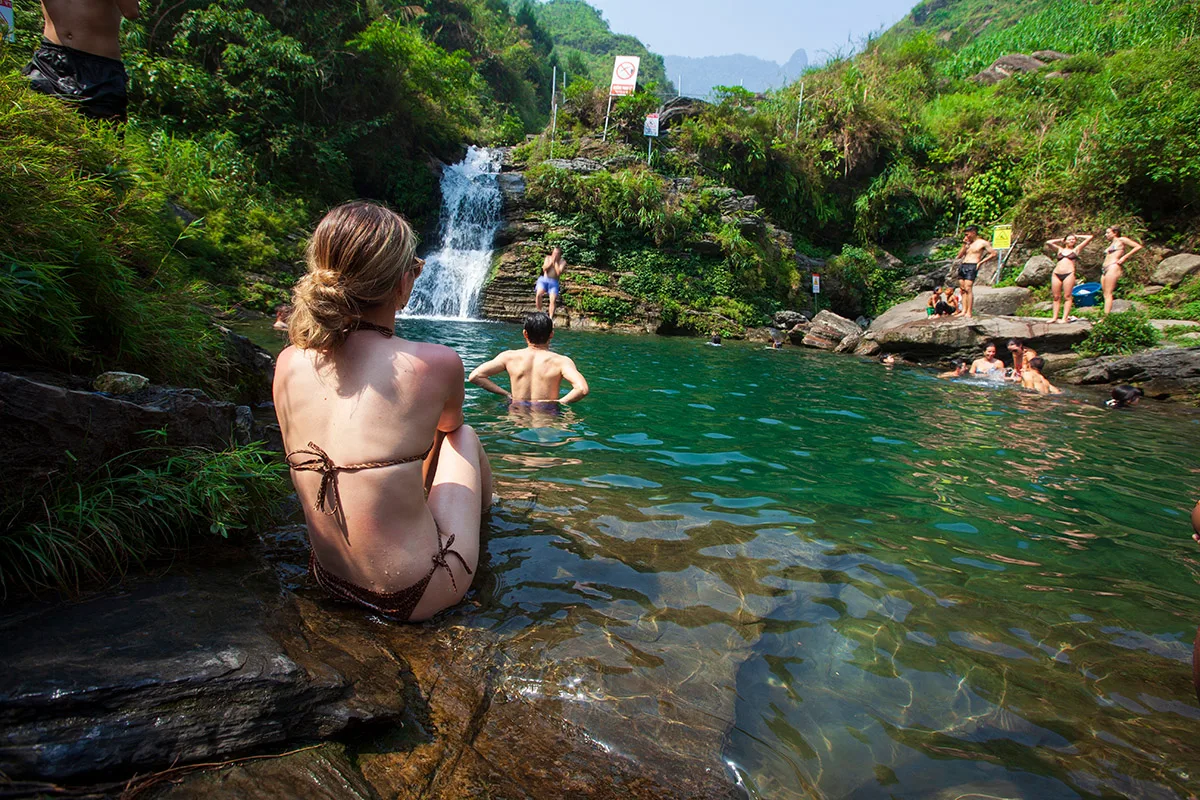Ha Giang Loop: The Ultimate First-Timer’s Guide (2025)
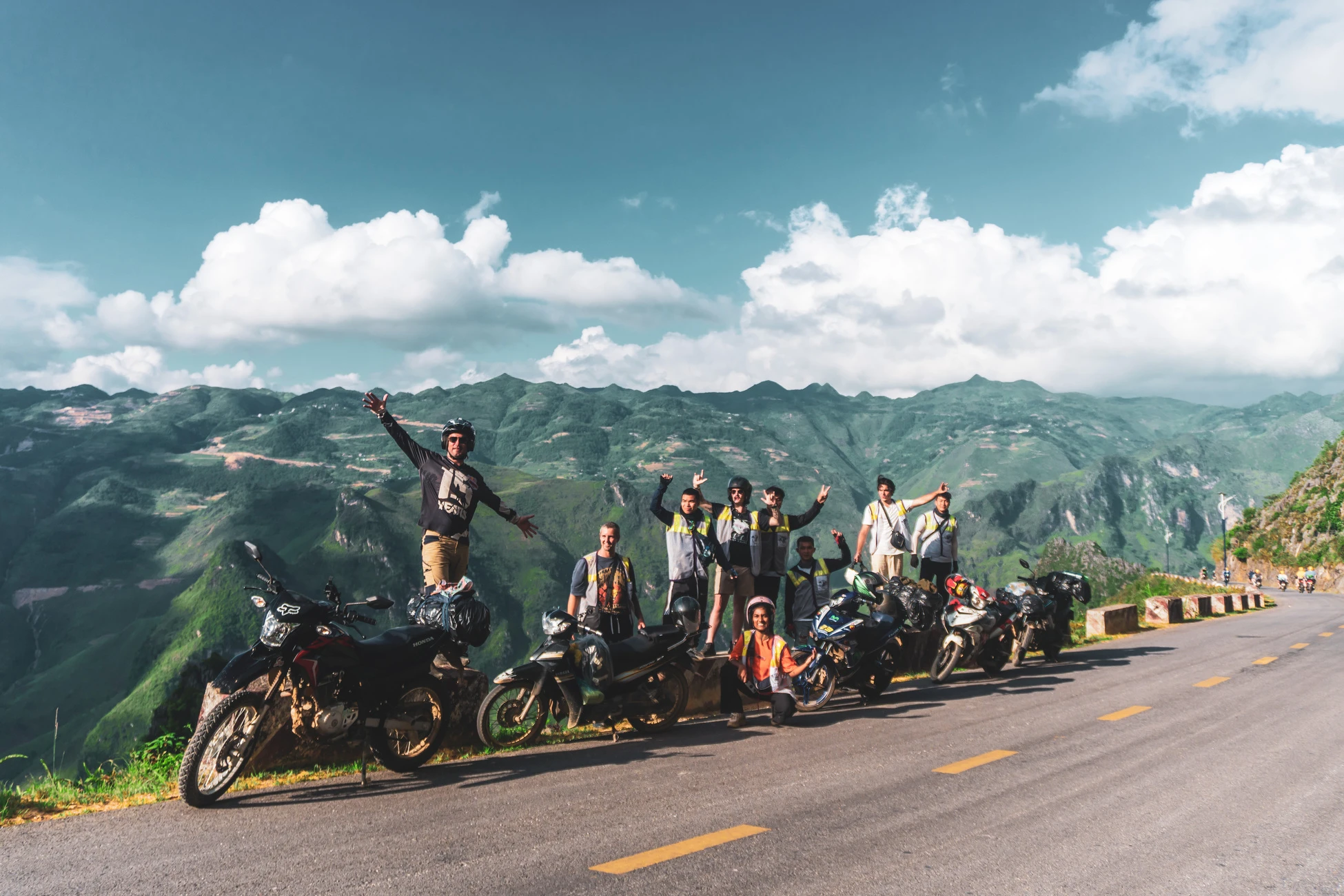
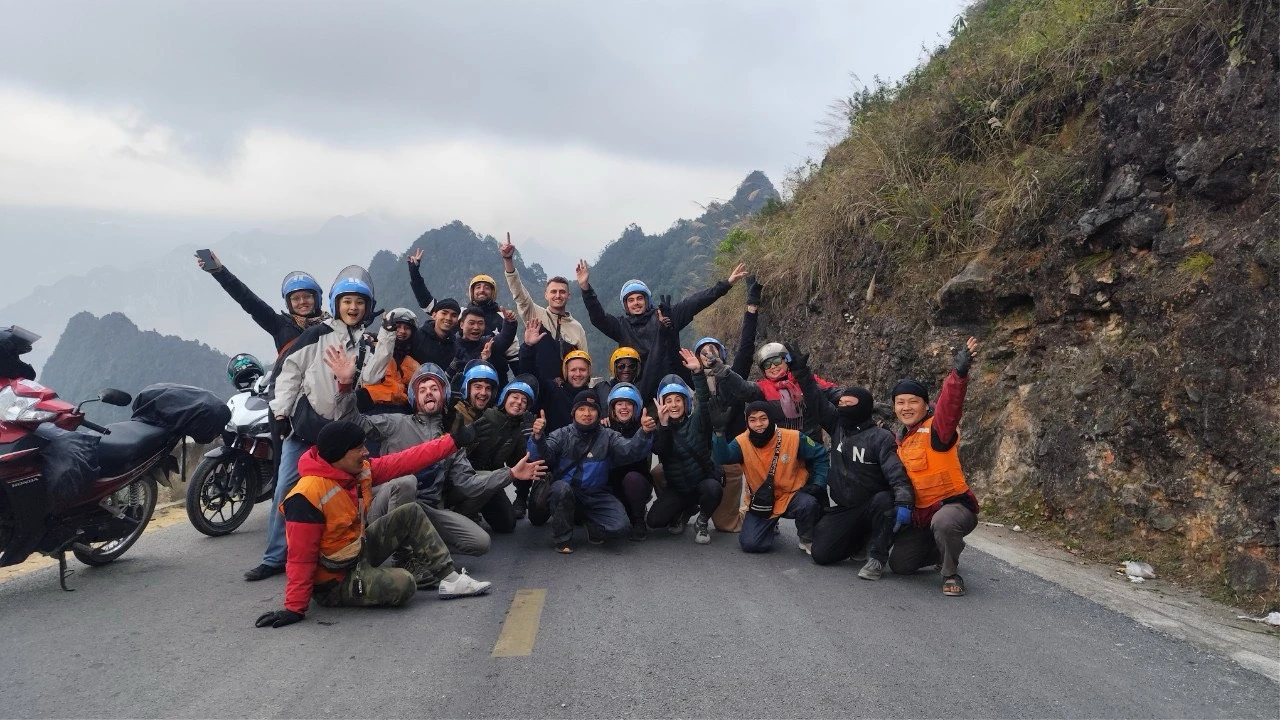
Motorbiking the Ha Giang Loop was, without a doubt, one of our favourite and most impactful travel experiences. This winding route through the mountains of Ha Giang province is home to some of the most stunning scenery that the Ha Giang region has to offer, including dramatic mountains, deep canyons, rice fields, and rivers. There are picture perfect landscapes at every turn!
But beyond its scenery, the Ha Giang Loop is a chance to get immersed in Vietnamese culture. We got to experience a completely different way of life, learn about Ha Giang’s ethnic minorities, and connect with locals on a deeper level than ever before.
Watch our epic motorbike trip in Northern Vietnam, including the Ha Giang Loop, plus the Cao Bang Province, where we saw the country’s tallest waterfall!
Whenever we think back on our time in Ha Giang, we get a tad emotional. It was all of the best things about travel: epic views, cultural experiences, new foods, and meaningful connections. In our opinion, it’s one of the must-do activities while travelling in Ha Giang and all of Vietnam.
If you want to experience this slice of Ha Giang paradise for yourself, we’re sharing everything you need to know before tackling the Ha Giang Loop. Including the many logistics to consider, the best stops to make along the way, itinerary options, and so much more.
Whether you’re conquering the Ha Giang Loop on your own or hiring a guide (like we did and highly recommend), we hope that this guide can give you a solid idea of what to expect along the way!
What is the Ha Giang Loop?
The Ha Giang Loop is a roughly 350 km (217-mile) multi-day motorbike loop through Vietnam’s northernmost province of Ha Giang, close to the Chinese border. It is known for its mountain passes, windy and narrow roads, drop offs, and rocky cliff sides.
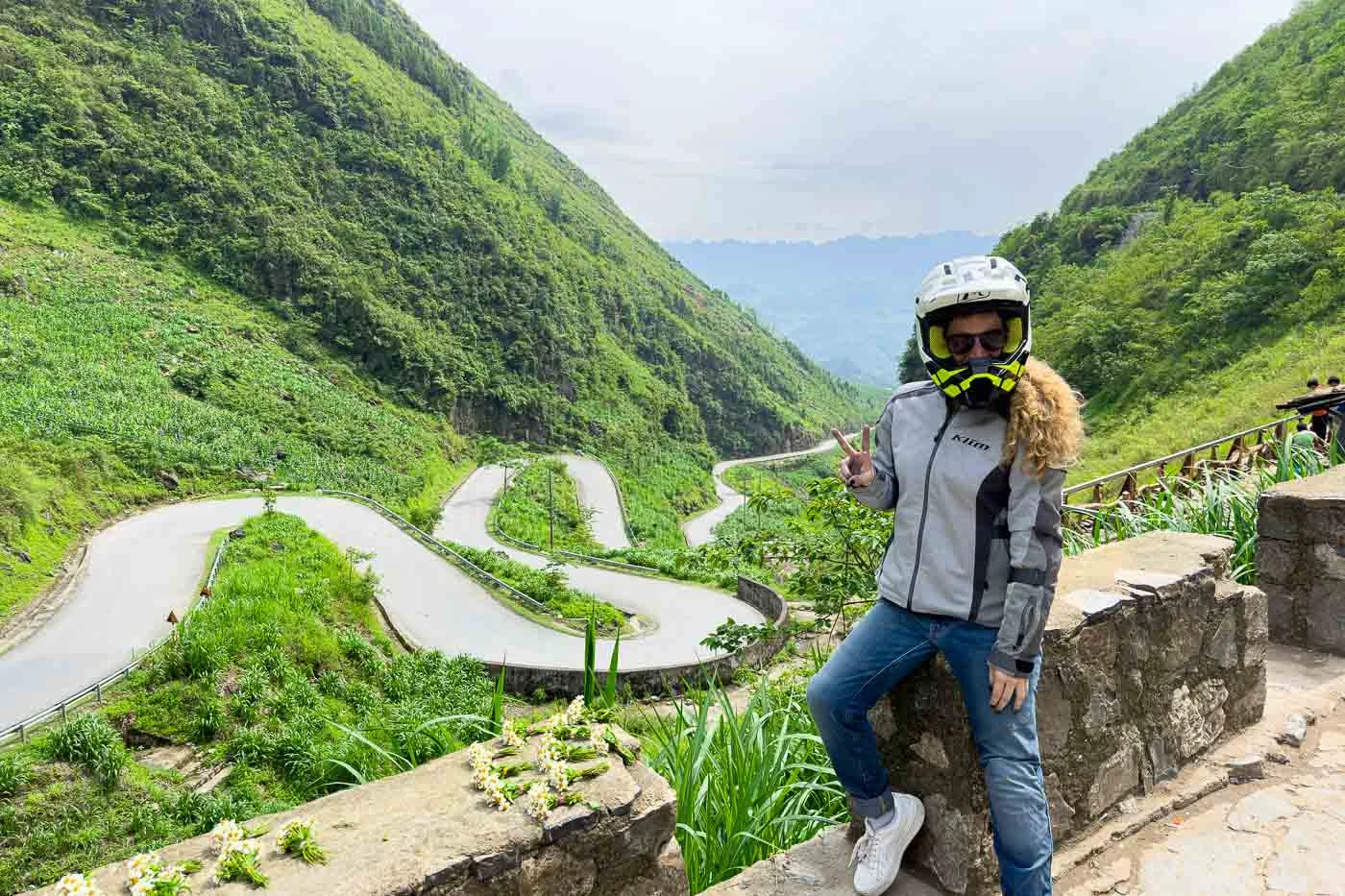
Tham Ma Pass, Ha Giang
Planning Your Ha Giang Loop Adventure
How Long Does It Take? The Ha Giang Loop can be completed in as few as two days or as many as four or more. However, a 2-day trip is generally considered too rushed to truly appreciate the scenery and cultural experiences. The most common duration is 3 days and 2 nights, which allows for a good pace. A 4-day, 3-night itinerary offers a more relaxed journey, providing more time to explore, take photos, and soak in the atmosphere of the small towns along the way. Do You Need a Guide? While you technically do not need a guide, it is highly recommended, especially for first-time riders or those unfamiliar with the region. There are numerous benefits to hiring a local guide:
- Safety and Expertise: Local guides know these challenging roads like the back of their hand. They can navigate them safely in various weather conditions and know all the best viewpoints and hidden spots that aren’t on any map.
- Cultural Immersion: A guide acts as a cultural bridge, offering invaluable insights into the local lifestyle and the traditions of the ethnic minorities. This can transform the trip from a scenic ride into a much more meaningful and educational experience.
- Logistical Ease: Guides handle all the logistics for you, including arranging meals, booking accommodations in homestays or local hotels, and managing any unforeseen issues that may arise.
Understanding Motorbike Laws It is crucial to be aware of the legal requirements for riding a motorbike in Vietnam. To ride legally, you will need an International Driver’s Permit (IDP). However, not all IDPs are valid. Vietnam only recognises IDPs from countries that are signatories to the 1968 Vienna Convention on Road Traffic. Unfortunately, IDPs issued in the USA, Canada, and Australia are not valid under this convention. The only way to legally drive a motorbike in Vietnam without a valid IDP is to ride a vehicle with an engine size of 50cc or less. While this may be sufficient for city driving, a 50cc bike will not be powerful enough for the steep, mountainous terrain of the Ha Giang Loop.In recent years, due to an increase in accidents, there has been a stronger police presence on the loop, particularly at checkpoints right after leaving Ha Giang city. If you are caught driving without the correct license, officers may confiscate your license and even your motorbike. Furthermore, if you get into an accident while driving illegally, your travel health insurance will likely not cover your medical expenses. Regardless of your license status, helmets are required by law for all riders and passengers.

Tour and Riding Options
The “Easy Rider” Experience
- Group Tours: These are a great way to meet other travellers. However, some group tours can be very large (40-50 people), which can feel impersonal and slow down the journey. The atmosphere in larger groups can often be party-focused. If you choose a group tour, look for companies that specialize in smaller groups (up to 10 people) for a more intimate experience.
- Private Tours: A private tour offers maximum flexibility. This is ideal for those with specific interests, such as photography or videography, as it allows you to stop whenever you want and even alter the route. While you may not meet as many other travelers, you will have the opportunity to form a deeper connection with your guides.
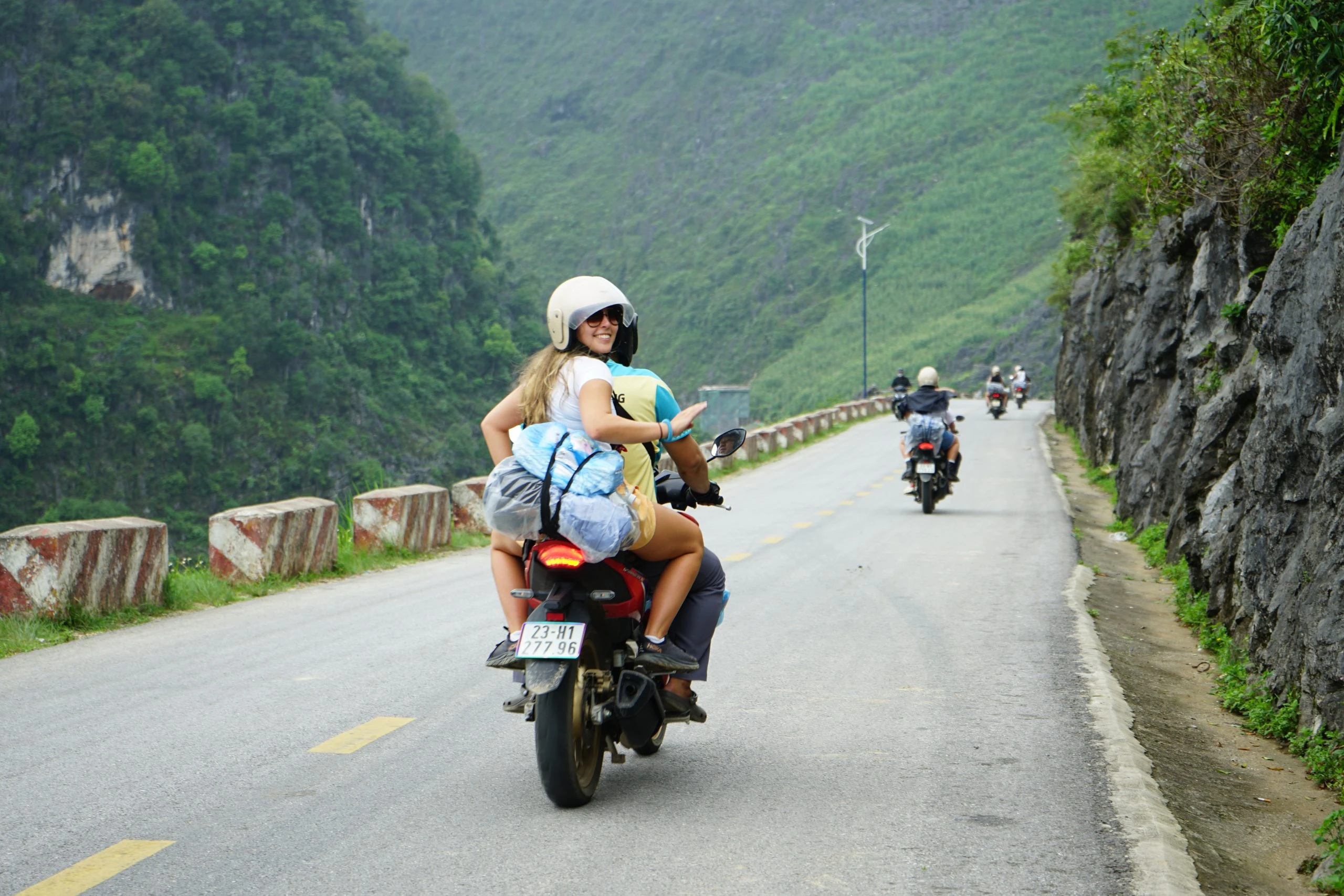
“Easy Rider”
Can You Visit by Car? For those who are not comfortable on a motorbike at all, many tour companies offer the option to experience the Ha Giang Loop by car. This is a safer alternative, but, in the opinion of most who have done the ride, it is not nearly as immersive or thrilling as being on a motorbike.

Logistics for Your Trip
Ha Giang city is the starting and ending point of the loop. It is located about 5.5 hours north of Hanoi. The most common ways to get there are by bus or van, which can be booked through services like Wigo Tourist or arranged by your tour provider. A popular option is to take an overnight sleeper bus, arriving in Ha Giang early in the morning to start the loop. A more comfortable alternative is to take a daytime van, arrive the day before, and get a good night’s rest. Best Time to Go The Ha Giang Loop can be ridden year-round, but spring and fall offer the most pleasant conditions.Spring (March – May): Temperatures are cooler, with blooming flowers and lush green foliage. The weather is generally perfect for riding.
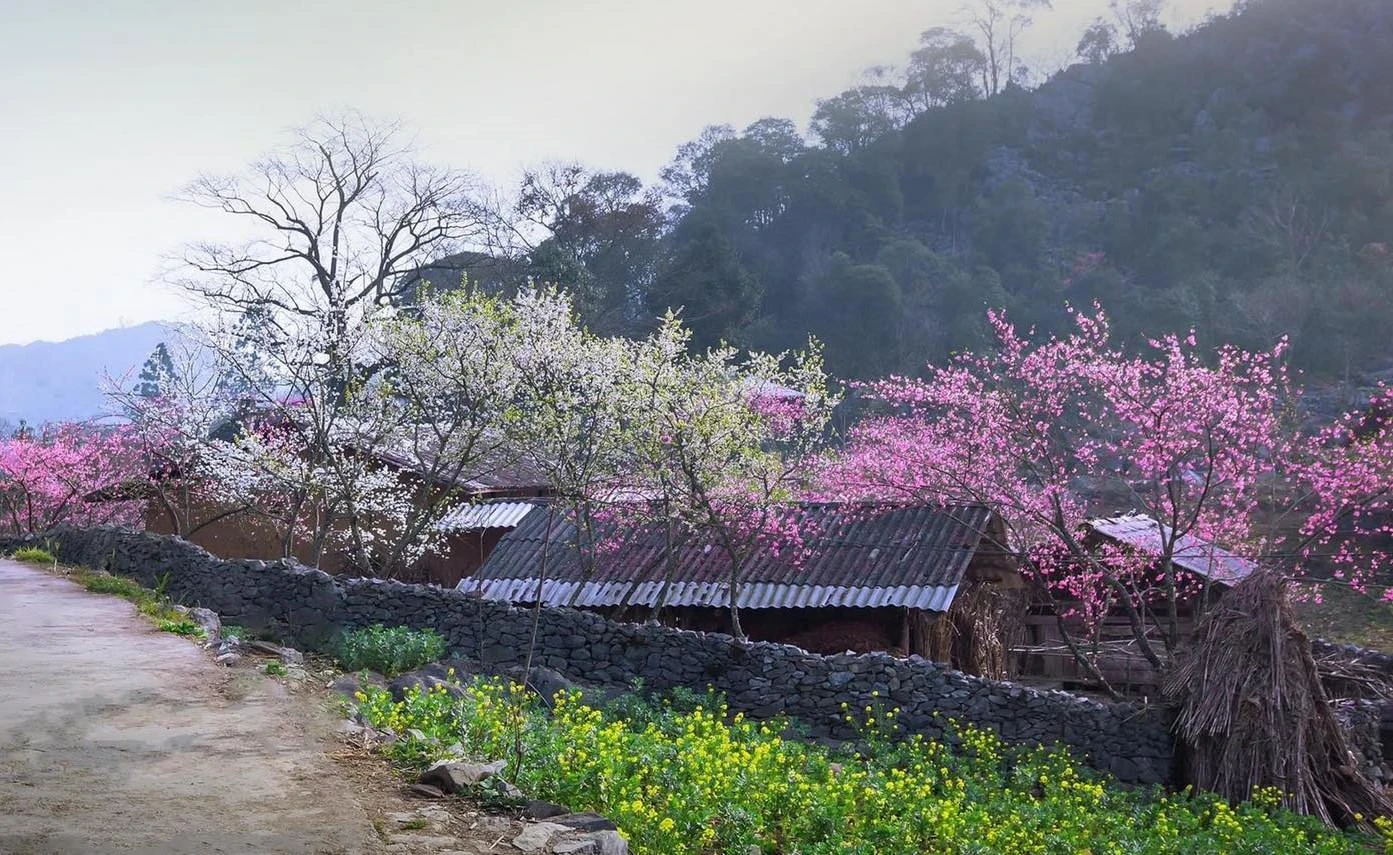
Dong Van stone plateau
Fall (September – November): This is the driest time of year and the most popular season for tourists. From September to October, the rice terraces turn a beautiful golden colour for the harvest.
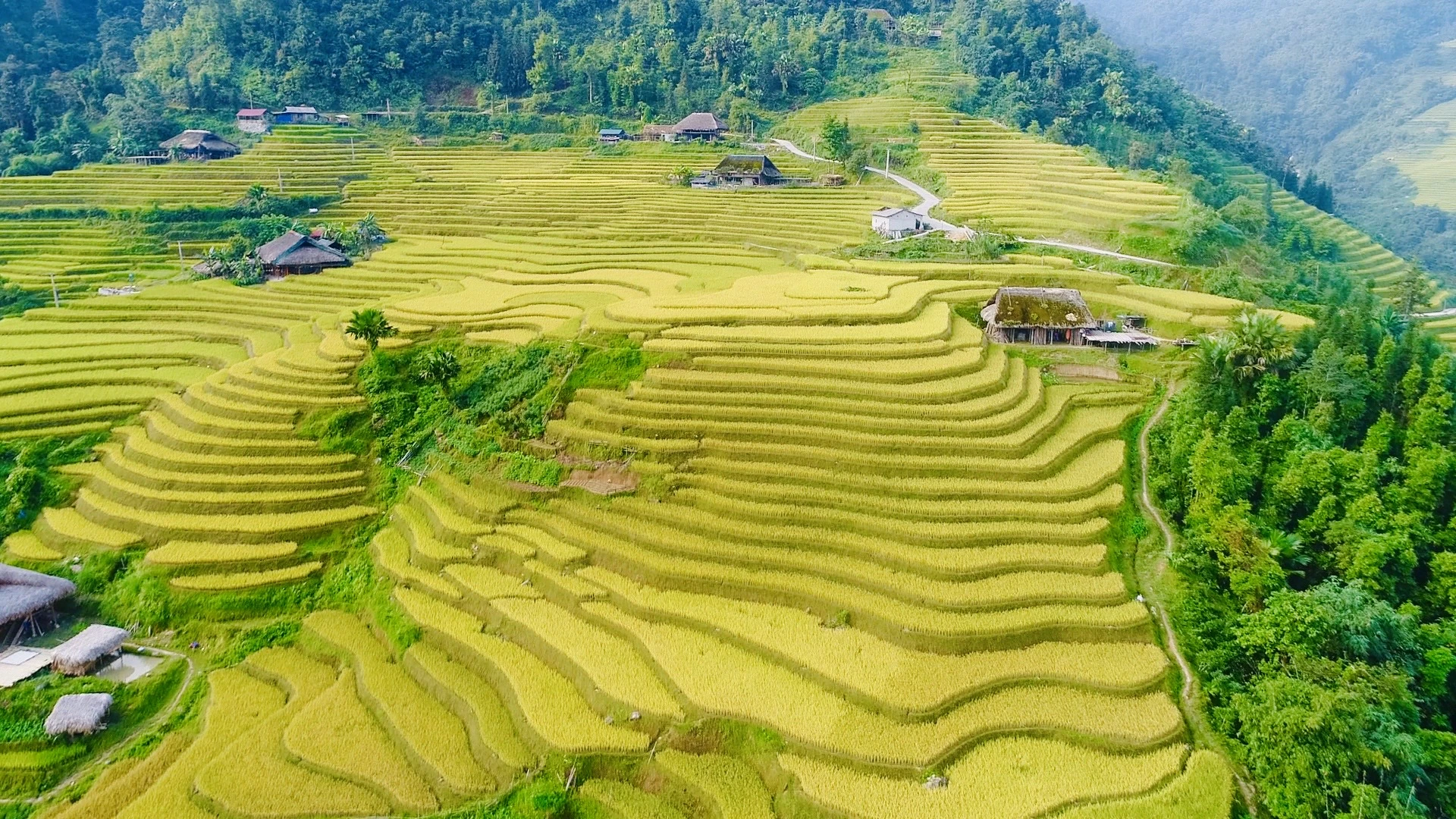
Xa Phin, Ha Giang
Summer (June – August): This is the rainy season. While the scenery is at its most green and lush, heavy and frequent rain can make the roads muddy, slippery, and dangerous.
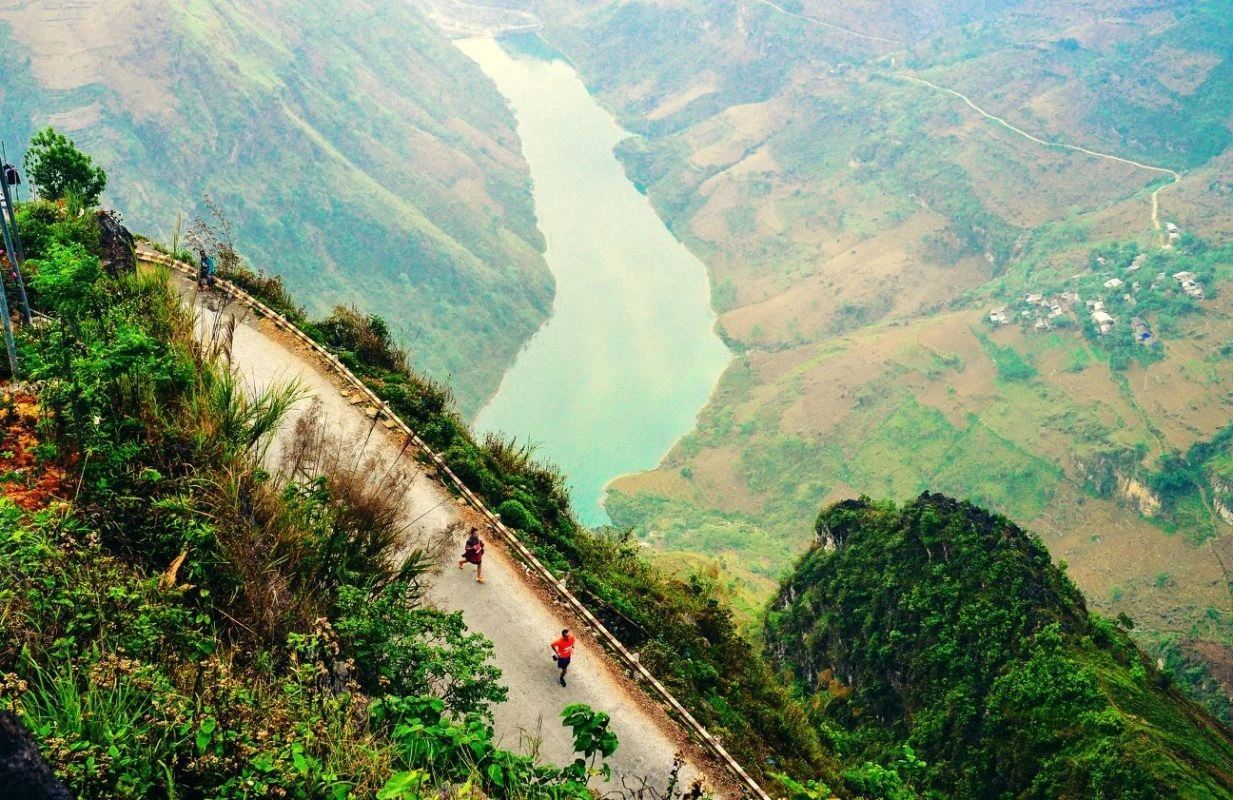
Ma Pi Leng
Winter (December – February): Temperatures can be very chilly. The landscape will be drier, and there is a risk of icy roads at higher elevations. Be mindful of the Tet Holiday (Lunar New Year), which usually falls in late January or February.
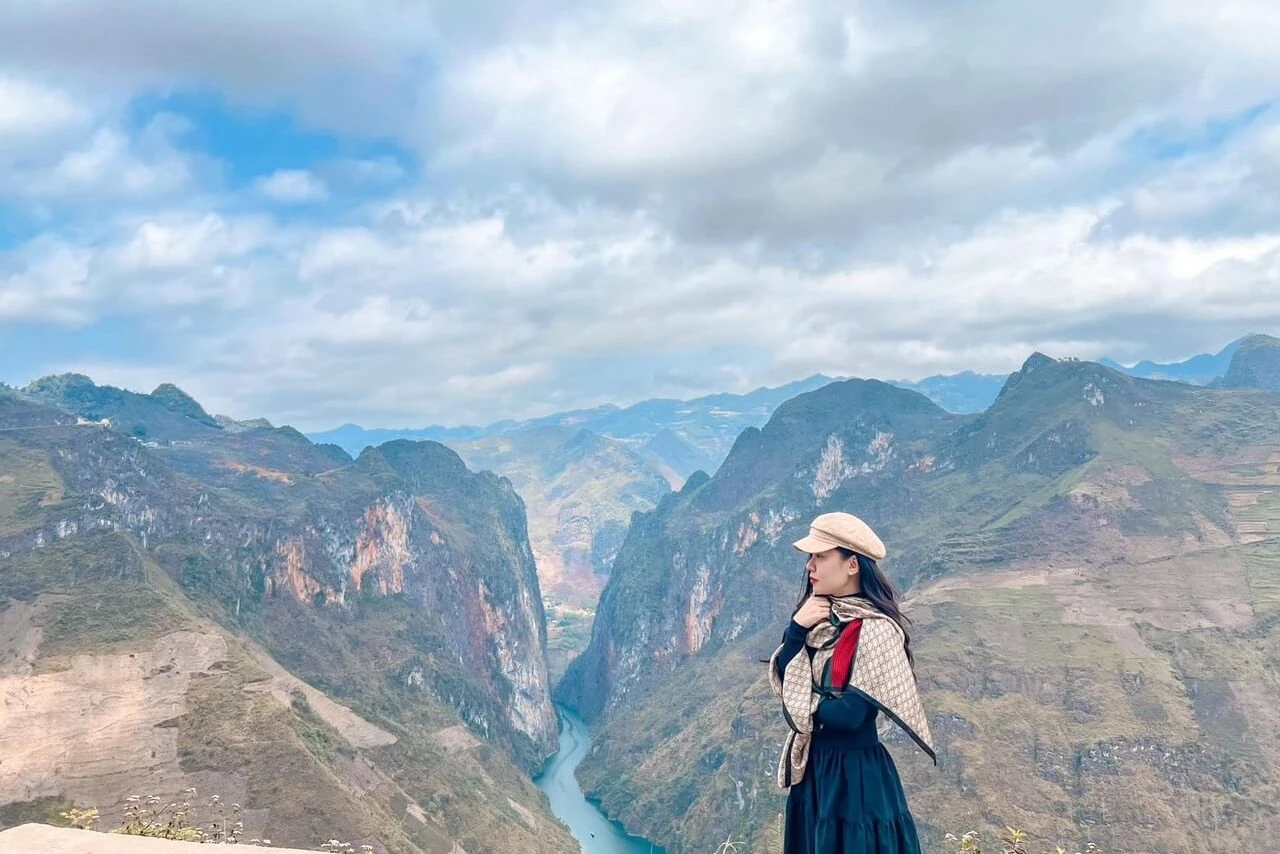
Dong Van Karst Plateau Geopark
Accommodation Along the loop, you will stay in small, family-run hotels or local homestays. The lodging is typically basic but clean and welcoming. Homestays are a highlight for many, offering a boutique-like feel, delicious home-cooked meals, and stunning settings. Be prepared for very firm beds, which are common throughout Vietnam. Food and DrinkMost meals will consist of traditional Vietnamese cuisine. If you are on a tour, your guide will select local restaurants and order a variety of dishes to be shared family-style, typically including meat, vegetables, and rice. Dietary restrictions can usually be accommodated, with tofu and vegetable dishes widely available. You will also frequently encounter “happy water,” a potent local rice wine that is a staple of social gatherings.
Essential Packing List
Since you’ll have limited space on the bike, it’s crucial to pack light. Most tour operators will store your main luggage, so you’ll only carry a small bag for the duration of the loop.
- Clothing: Pack layers, as the weather can change quickly. A good rain jacket is essential, even in the dry season. For temple visits, ensure you have clothing that covers your knees and shoulders.
- Shoes: Sturdy, enclosed shoes like trail runners are recommended.
- Technology: Bring your camera, a portable charger, and download Vietnamese on Google Translate for offline use.
- Miscellaneous: Cash for tips and extras, sunglasses, sunscreen, a small first-aid kit, and personal toiletries. A fanny pack or small backpack is useful for keeping essential items like your phone and camera easily accessible while riding.
Top Stops and Sights Along the Ha Giang Loop
The loop is packed with breathtaking viewpoints and cultural landmarks. While a guide will know the best secret spots, here are some of the unmissable highlights.Bac Sum Pass: Your first major mountain pass after leaving Ha Giang city, offering a taste of the winding, mountainous roads to come.
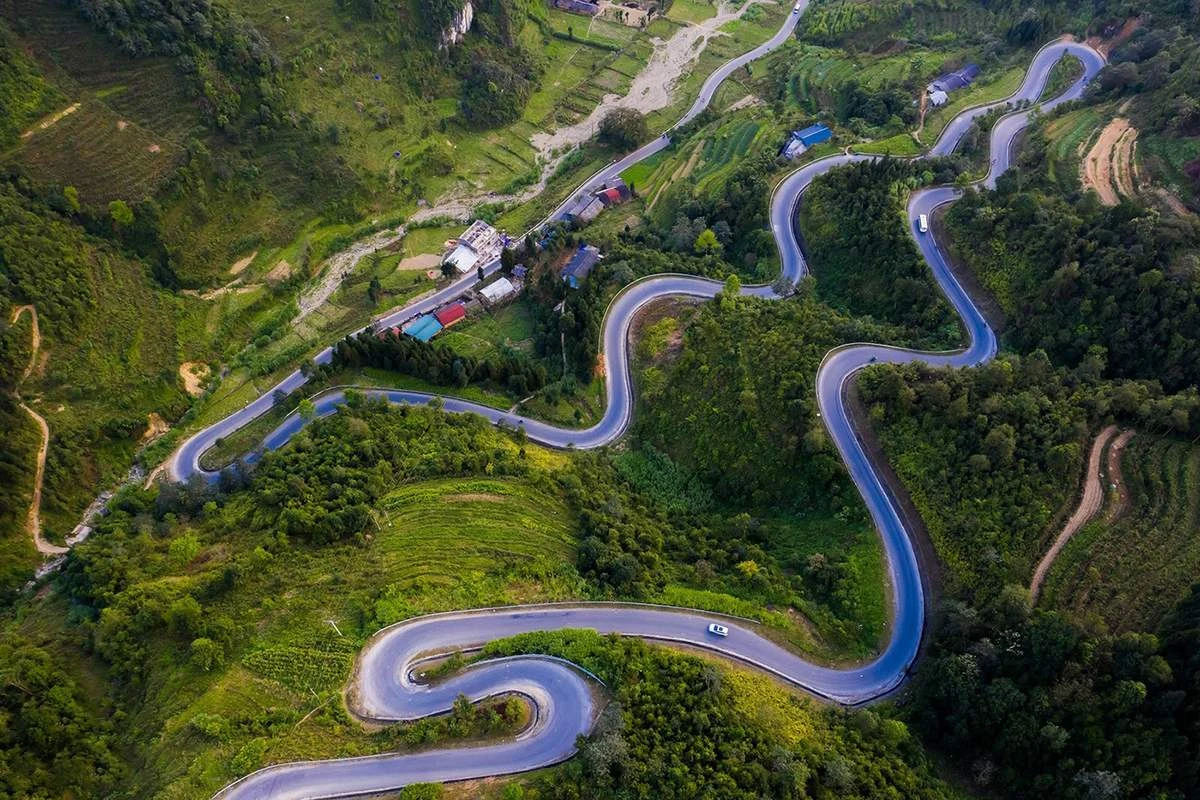
Quan Ba (Heaven’s Gate): The gateway to the Dong Van Karst Plateau Geopark, a UNESCO site. The viewpoint here offers sweeping views of the mountains and the famous Twin Mountains (Fairy Breast Mountains) below.

Dong Van Karst Plateau Geopark
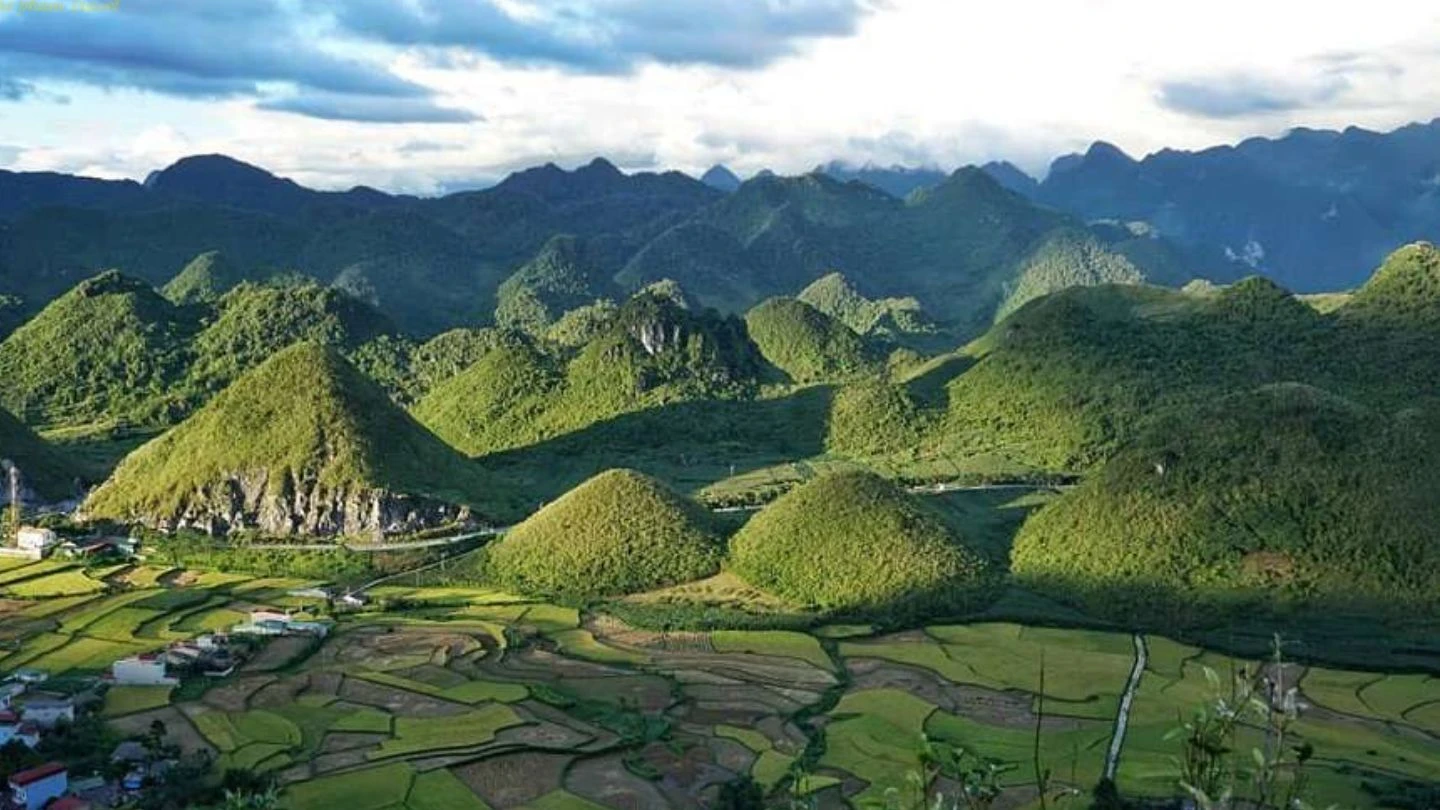
Twin Mountains
Tham Ma Pass: One of the most iconic and photographed sections of the loop, this steep road features nine tight bends winding up a narrow valley.
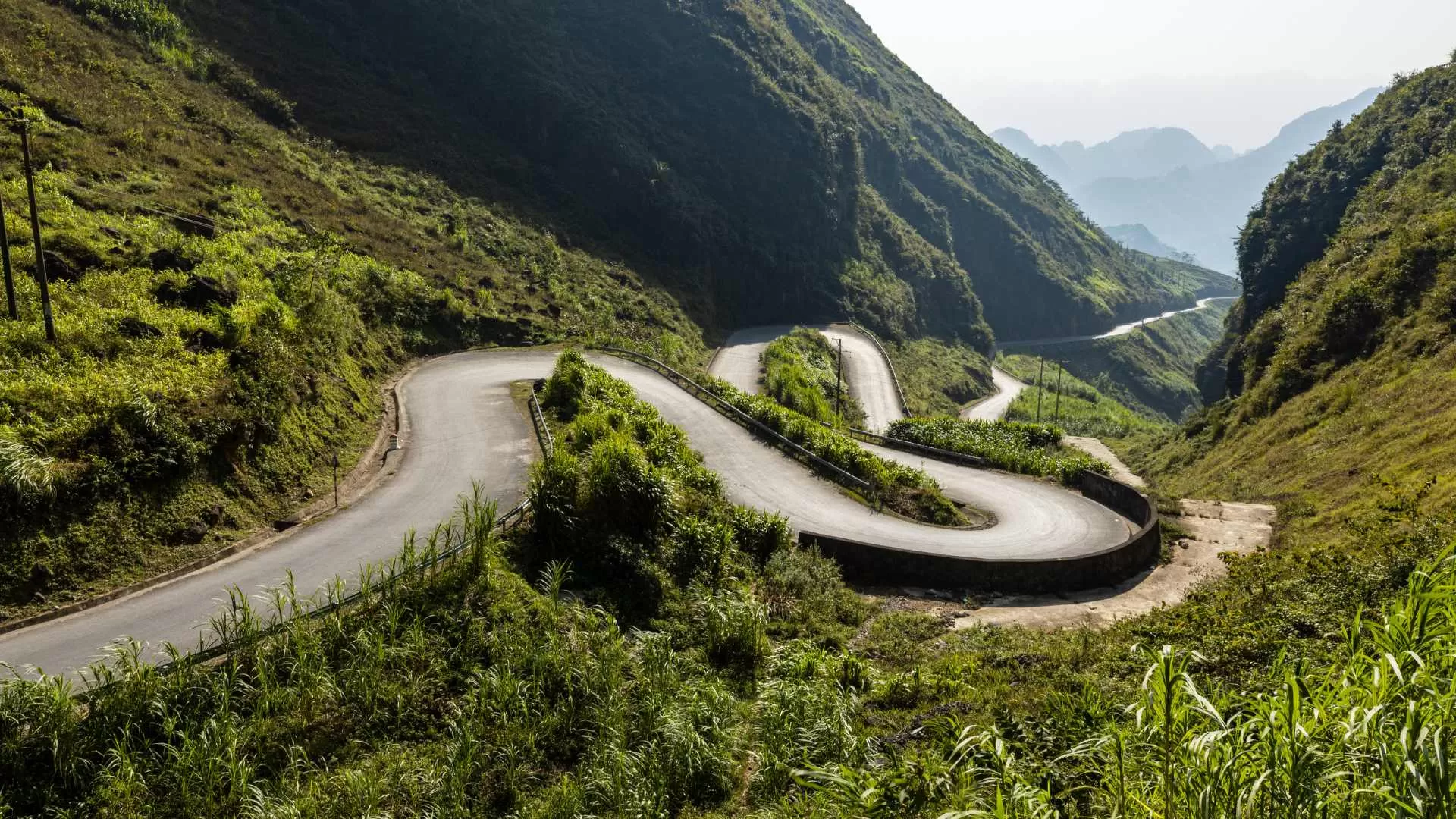
Hmong King’s Palace: A historic and important site built in 1902, this was the residence of a powerful Hmong family regarded as local royalty.
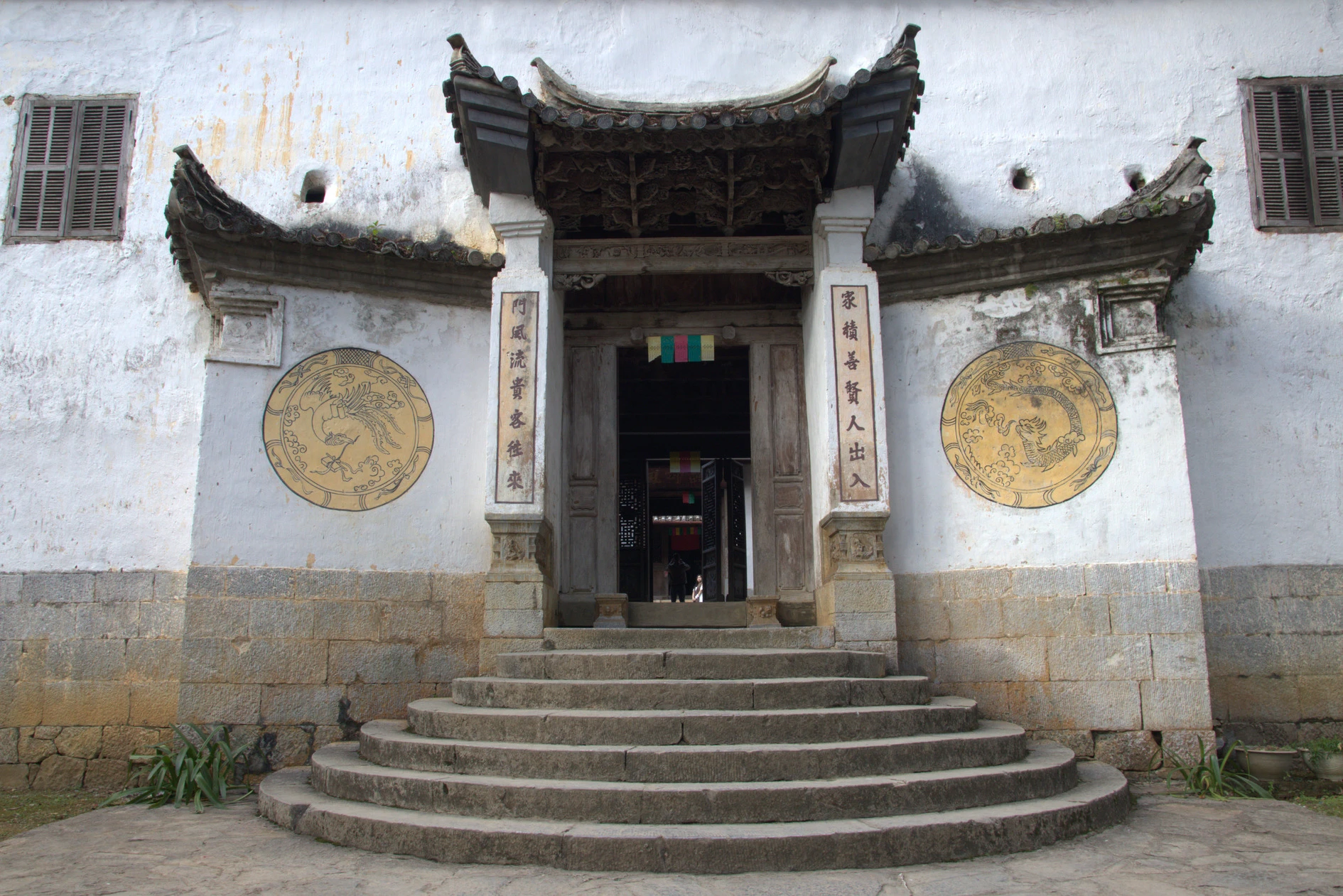
Dong Van: A major town along the loop and a common overnight stop. Its Ancient Town area is charming, and the Sunday market is a vibrant hub for local ethnic groups.
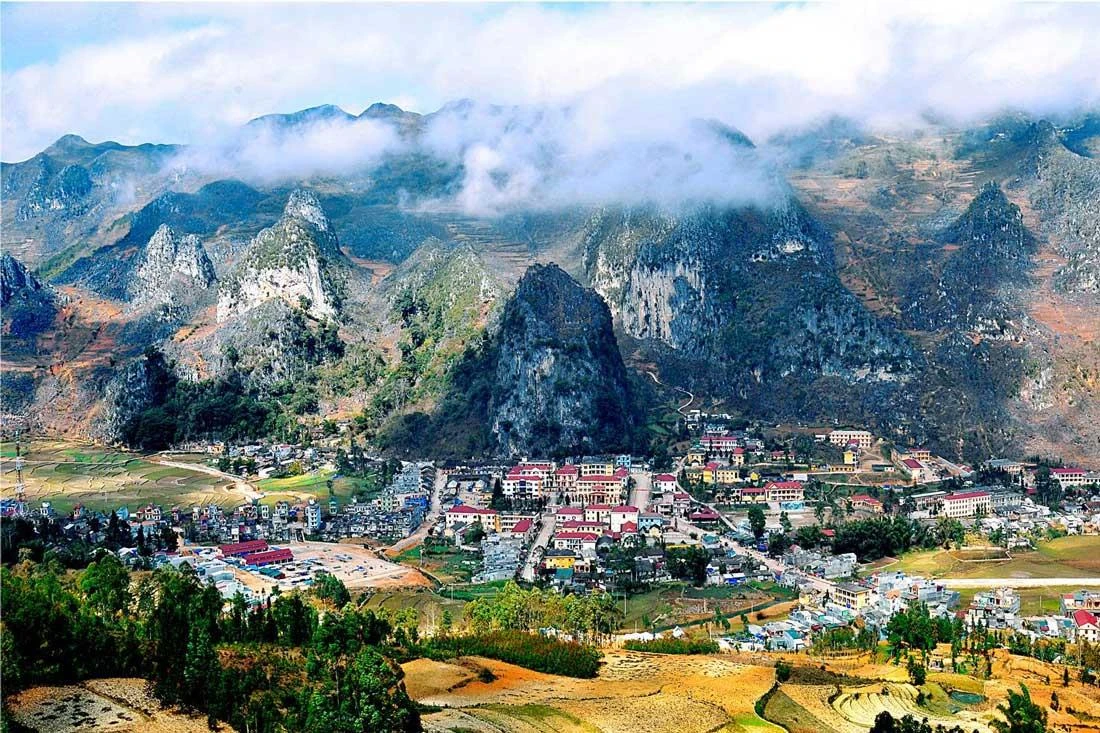
Lung Cu Flag Tower: A short detour from the main loop, this 33-meter tower marks the symbolic northernmost point of Vietnam. Climbing to the top offers incredible 360-degree views, including a look across the border into China.
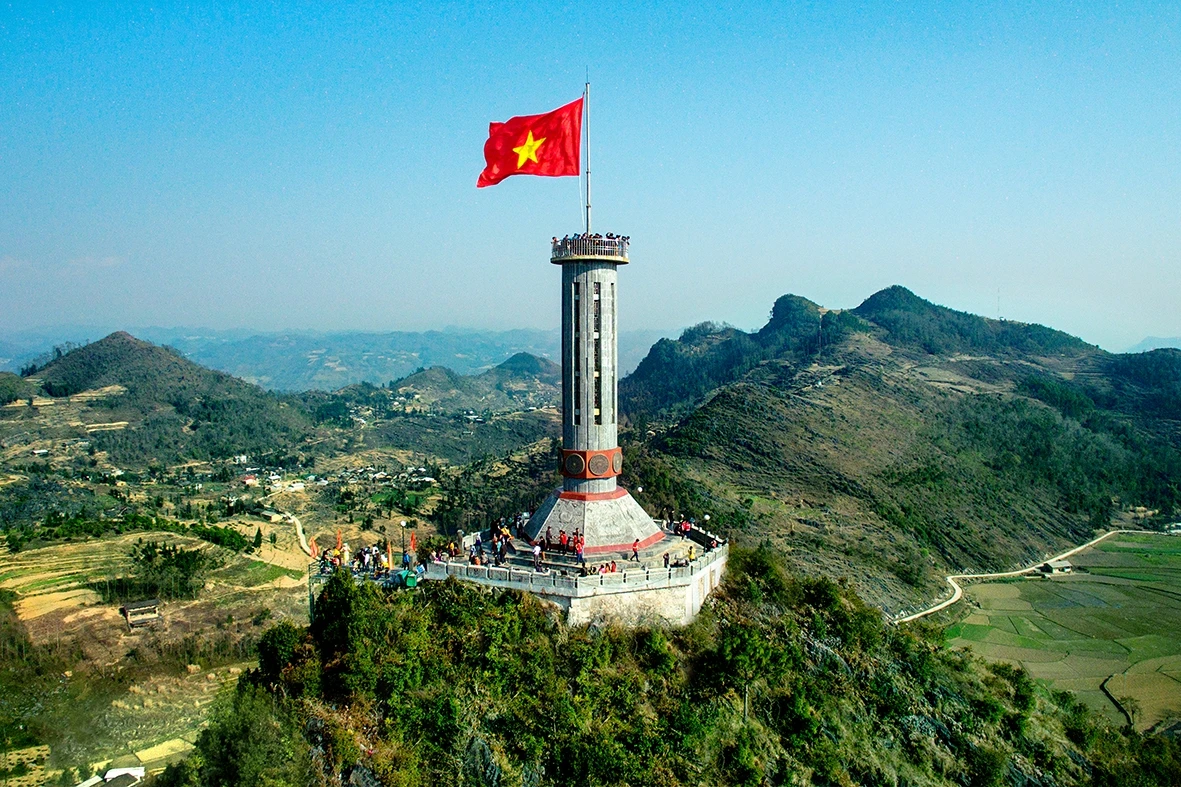
Ma Pi Leng Pass: Arguably the most spectacular part of the entire journey. This epic stretch of road is carved into the side of a mountain, offering breathtaking views down into the Tu San Canyon, the deepest canyon in Southeast Asia, with the emerald-green Nho Que River flowing below.
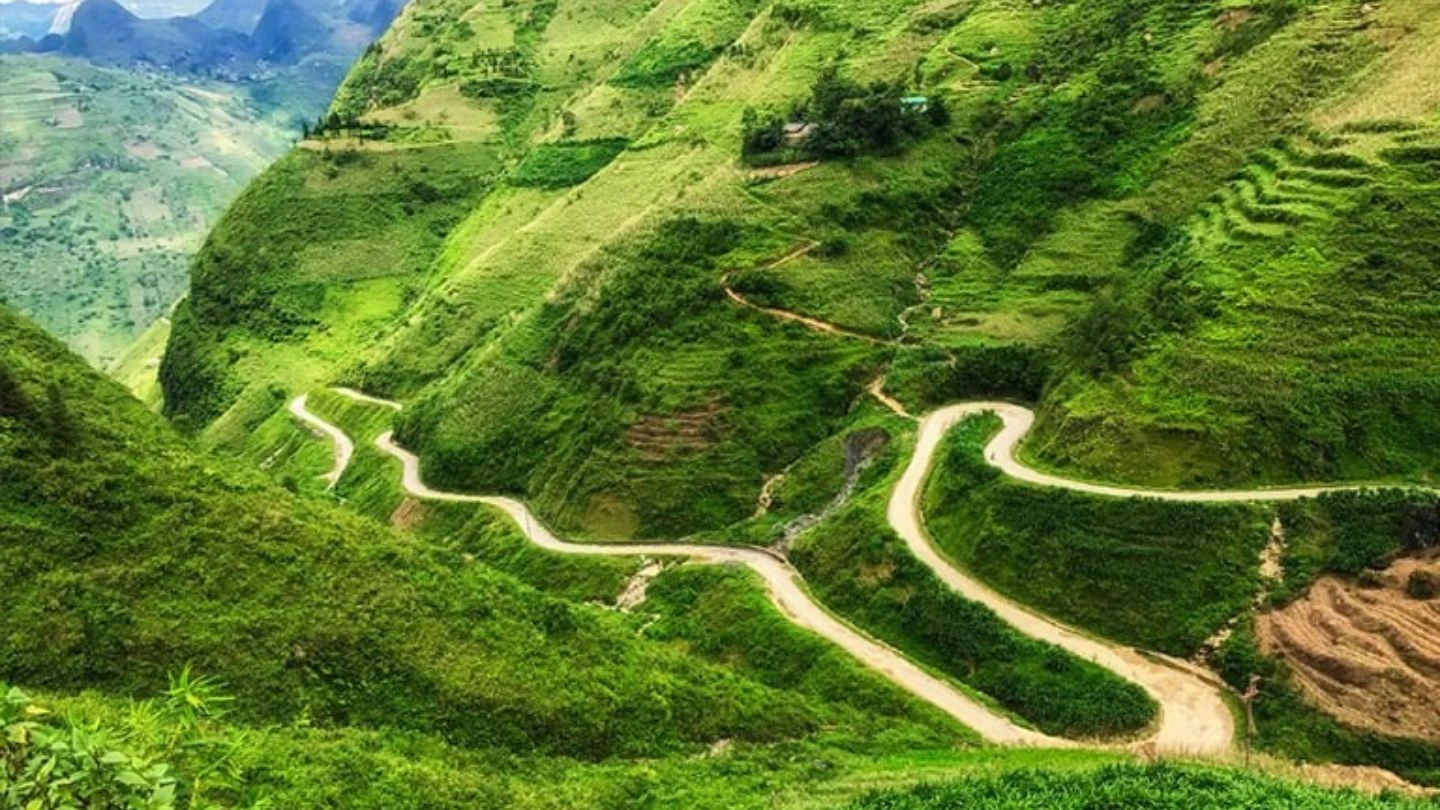
Ma Pi Leng Pass
Nho Que River Boat Ride: A truly unforgettable experience. After a steep, winding descent, you can take a boat ride through the Tu San Canyon, an activity that offers a completely different perspective of the towering canyon walls.

Du Gia Waterfall: A beautiful waterfall and a popular swimming spot, perfect for a refreshing break, especially on a hot day.
